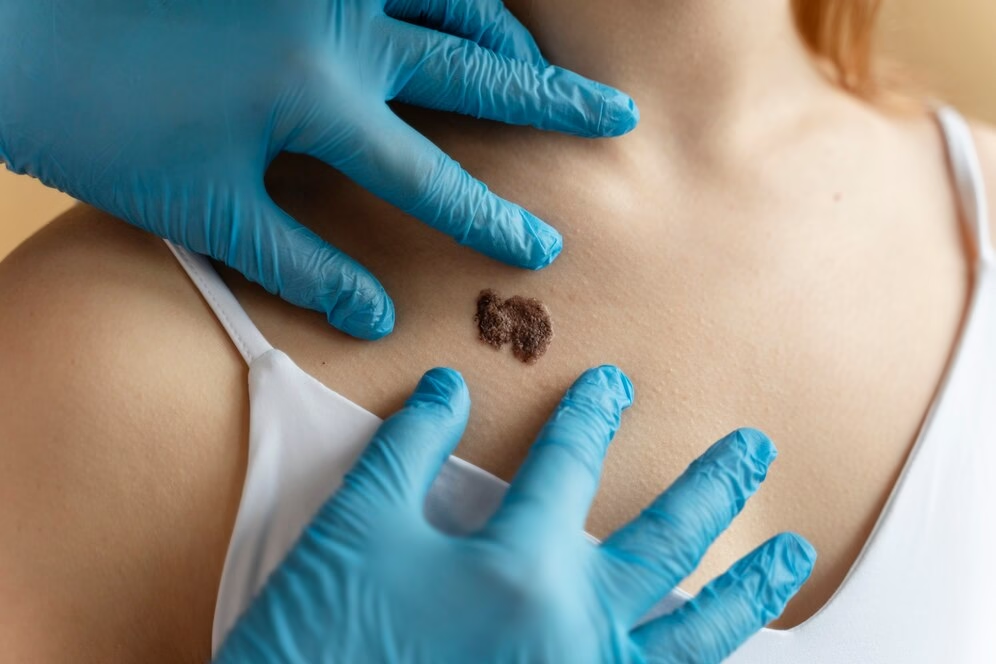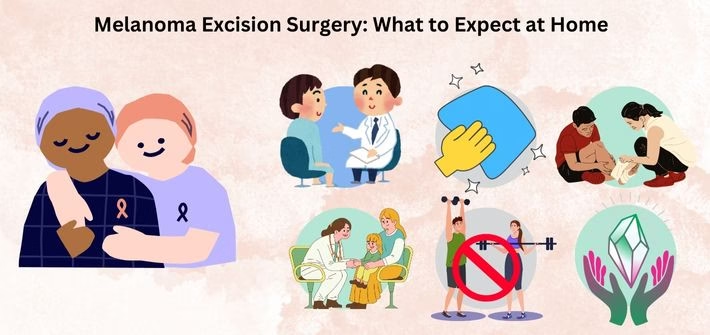Melanoma excision surgery is an effective treatment option, especially when caught early. This procedure is effective because it removes the melanoma and some healthy tissue around it, which helps prevent recurrence. In some cases, metastasectomy can help you deal with the issue.
Your skin cancer specialist will diagnose and recommend the best treatment available for treating the area. The survival rate for 5 years for all stages of melanoma combined is 94%. For early-stage melanoma, survival rates are even higher, exceeding 99%. If your procedure is done effectively, the task remains undone because aftercare is crucial as the procedure. Now, the aftercare at home is in your hands, but don’t worry, we will help you.
Melanoma Aftercare At Home: Dos and Don’ts
Proper care at home is key to promoting better healing. Your specialist can help you in several ways, but it’s you who needs to take care at home. Here are dos and don’ts for better understanding:
Do’s
A clear and better explanation of what you need to do after your melanoma excision surgery is here:
Keep the Wound Clean and Dry
The first 24 to 48 hours are essential, so after these first hours, begin gently cleaning the surgical site. Use mild soap and warm water. Rubbing the area can worsen the wound; instead, pat the area dry with a clean towel. Apply ointments or dressings as prescribed by the healthcare professional. Keeping the area clean and dry will help prevent infection and support tissue repair. Follow the instructions of the specialist for wound care timing and technique.
Protect the Area
Sun exposure is not good for the healing process, so limit your sun exposure and protect your skin from harmful UV rays; it can slow down the healing process and worsen the scar. You are increasing the risk of melanoma returning due to the sun exposure, so be safe and informed. Opt for broad-spectrum sunscreen with at least SPF 30 for better protection.
Monitoring
Check the treated area daily for early signs of infection such as increased redness, warmth, swelling or foul odour. Monitor for fever, chills or sudden increase in pain. Detecting infection early can help you prevent serious complications.
Follow-up Appointments
Follow-up appointments are essential to attend because even if you are feeling fine, there must be something hidden behind. Let the healthcare professional examine the area and detect the signs of infection or returning melanoma early to prevent serious complications.

Your expert might suggest a diet change or exercise recommendations, so listen to them carefully and move ahead as they suggest.
Don’ts
Your normal routine may look fine, but here are some essential things to ignore while recovering from melanoma excision surgery:
Avoid Heavy Workouts
The first week or two are most crucial, so take care of yourself. Avoid activities that could stress or stretch the surgical site, such as lifting heavy objects, heavy exercises or sudden movements. These actions might lead to tearing stitches or reopening the wound. The recovery time may vary from person to person because everyone has their own ability to heal.
Don’t Pick at the Wound
No matter what your mind says, do not scratch or pick at the wound or scab. Let it heal as these things might reopen the incision, cause infection, hinder the healing process and leave a more serious scar. Scabs are natural to appear when the healing process is going on, so protect your new skin and avoid touching it.
Avoid Water for Some Time
Avoid exposure of the wound to water. Baths, pools or hot tubs can wait for some time. Waster exposure before the wound has sealed properly can introduce bacteria, soften the tissue, and lead to infection or delayed healing. Short showers are generally fine after 48 hours, but cover the area and avoid letting it stay wet for long. Pat the area dry gently and do not rub it.
Do Not Ignore Complications
“Oh! It’s just some pain or increased redness, it’s part of healing.” Yes, pain and redness are part of the healing process, but increased pain or redness are not. They might be an indication that you need special attention immediately. Early treatment can prevent serious complications and speed up recovery. If anything feels off or worsens unexpectedly, contact your healthcare provider right away rather than waiting for your next appointment.
So here were the essential things you should know. These might be helpful, but do not forget the better instructions on diet, exercise and lifestyle choices. You are smart enough to know that smoking and alcohol consumption are a big NO. For better instruction and melanoma detection, contact Skin Check Near Me.

